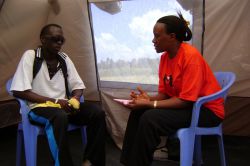Breaking News
- Flexible Remote Work Opportunity for University Students: Earn $100–$250 Per Month ...Read More
- Ministry of Education and Sports Azerbaijan Government Scholarships For 2025-2026 Academic Year ...Read More
- Government Sponsorship Undergraduate Admission Lists 2025-26 for Makerere University ...Read More
- Ministry of Education And Sports: Egyptian Government Scholarships 2025-2026 Academic Year ...Read More
- Ground Breaker Full Scholarship for girls to study Software Engineering 2025 July Intake ...Read More
- Tony Elumelu Foundation Entrepreneurship Programme (TEEP) 2025 for young African Entrepreneurs ...Read More
- DESIGNING FUTURES 2050 International Design Competition 2025 (€15,000 prize) ...Read More
- Ground Breaker Full time Scholarship for girls to study Software Engineering 2025 Intake ...Read More
- Ministry of Education And Sports Algerian Vocational Training Scholarships for 2024-2025 AY ...Read More
- Ministry of Education and Sports Advert for the Algerian Government Scholarships for 2024-2025 ...Read More
Female students in Uganda develope a Gynecology App
It can be difficult for women in rural Uganda to get the medical care they need, but a group of five female college students who call themselves the Code Gurus are hoping to change that.
Though hospitals and proper medical facilities exist, a simple trip to see a doctor can cost nearly an entire month"s salary. Because of these steep prices, women are more likely to put off getting treatment at the first sign of trouble, putting themselves at risk for developing serious and potentially life-threatening complications.
The Code Gurus are led by 25-year-old Maghi Nanyombi, a student at Makerere University in Uganda. According to TakePart, Nanyombi had been working on a detection unit for sickle cell anemia when her friend"s mother passed away from cervical cancer, having not received treatment until the disease had progressed too far. She then shifted her focus to taking on one of the most common gynecological infections.
These incredible women have developed a machine and a corresponding app called Her Health BVKit that allows women to take their health care into their own hands by detecting a common vaginal infection and alerting them when they need to seek medical attention.
Bacterial vaginosis (BV) is a common infection that occurs when the bacterial flora in the vagina is thrown off because of sexual activity, douching, or other reasons that aren"t entirely clear yet. Some women experience no symptoms with the infection, while many others experience abnormal discharge or painful itching or burning.
It"s not uncommon for the infection to go away on its own at times, but if it doesn"t and is left untreated by antibiotics, it can have some devastating side effects. Women with an active BV infection are more susceptible to acquiring STDs such as HIV, chlamydia, and gonorrhea, as well as strains of HPV that can cause cervical cancer.
The Her Health BVKit is easy to use and can identify a BV infection early on, allowing women to get treatment before the side effects occur. In the comfort of their own homes, women can take a sample of urine or vaginal discharge and hold it under the sensor of the device. Without having to physically touch the sample, the device analyzes its contents and determines whether or not an infection is present.
(Photo: Margaret Nanyombi)
The information is then sent to the app where the user is given the pH of the sample, how severe the infection is, and whether or not to seek medical attention. The app also retains information regarding previous tests, allowing women to track their health history and work alongside doctors to provide proper care.
Of course, the women in rural Uganda who have a hard time paying for a regular doctor"s visit may also struggle with the $60 price tag for the testing unit itself. Currently, the creators are trying to raise money to provide kiosks with the technology that can be collectively used by women in the most remote towns of Uganda, free of charge.
Watch Video below for more information
(H/T: aplus)
Top Courses Currently Admitting
-
Diploma in Office Management and Secretarial Studies
Nkumba University
-
Certificate in Office Management
Nkumba University
-
Bachelor of Arts in Social Sciences
Makerere University
-
Bachelor of Science in Agriculture with Biotechnology & Plant Breeding
Bugema University
-
Bachelor of Science in Computer Engineering (Weekend)
Lira University
























